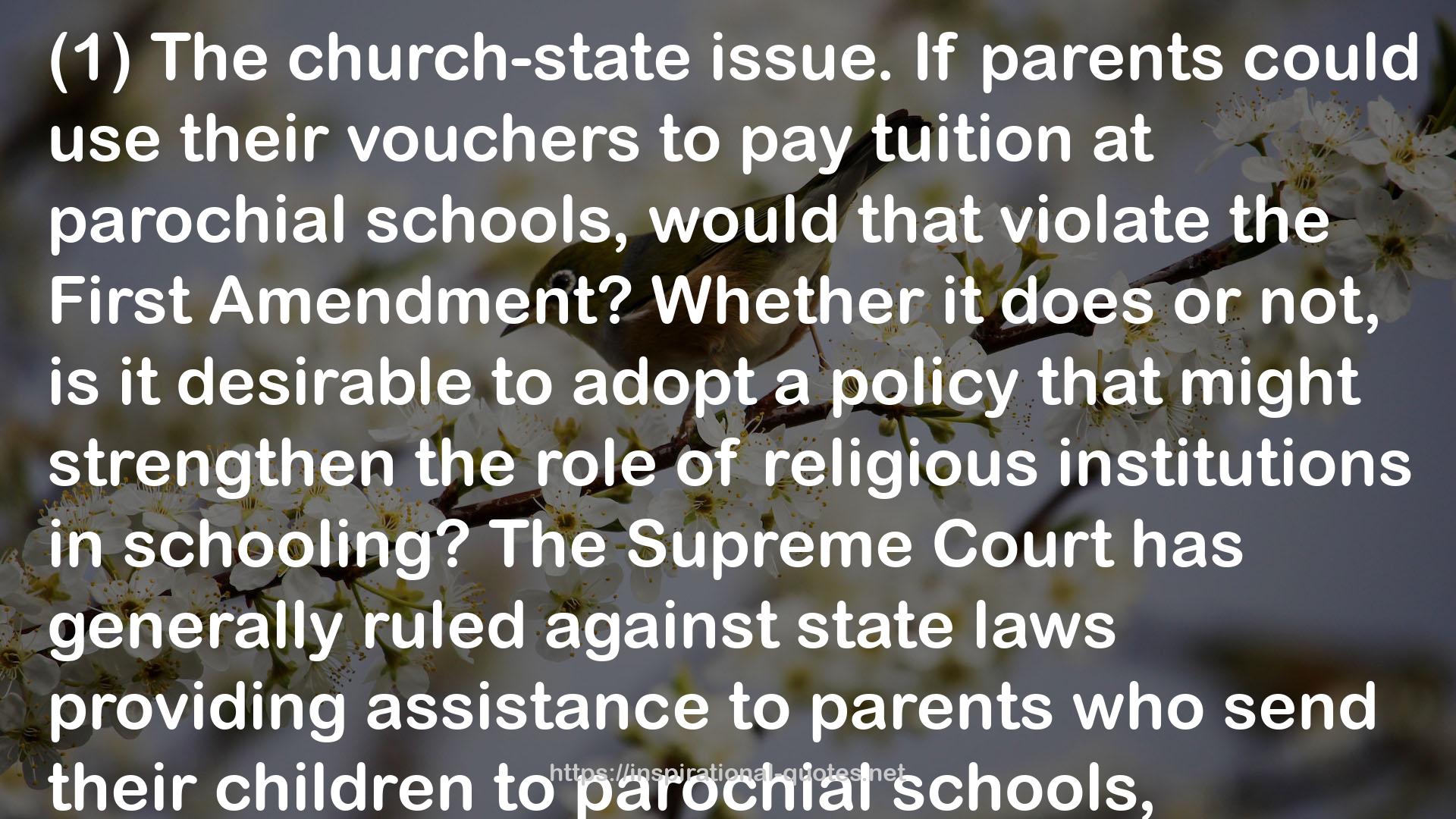" (1) The church-state issue. If parents could use their vouchers to pay tuition at parochial schools, would that violate the First Amendment? Whether it does or not, is it desirable to adopt a policy that might strengthen the role of religious institutions in schooling? The Supreme Court has generally ruled against state laws providing assistance to parents who send their children to parochial schools, although it has never had occasion to rule on a full-fledged voucher plan covering both public and nonpublic schools. However it might rule on such a plan, it seems clear that the Court would accept a plan that excluded church-connected schools but applied to all other private and public schools. Such a restricted plan would be far superior to the present system, and might not be much inferior to a wholly unrestricted plan. Schools now connected with churches could qualify by subdividing themselves into two parts: a secular part reorganized as an independent school eligible for vouchers, and a religious part reorganized as an after-school or Sunday activity paid for directly by parents or church funds. The constitutional issue will have to be settled by the courts. But it is worth emphasizing that vouchers would go to parents, not to schools. Under the GI bills, veterans have been free to attend Catholic or other colleges and, so far as we know, no First Amendment issue has ever been raised. Recipients of Social Security and welfare payments are free to buy food at church bazaars and even to contribute to the collection plate from their government subsidies, with no First Amendment question being asked. Indeed, we believe that the penalty that is now imposed on parents who do not send their children to public schools violates the spirit of the First Amendment, whatever lawyers and judges may decide about the letter. Public schools teach religion, too—not a formal, theistic religion, but a set of values and beliefs that constitute a religion in all but name. The present arrangements abridge the religious freedom of parents who do not accept the religion taught by the public schools yet are forced to pay to have their children indoctrinated with it, and to pay still more to have their children escape indoctrination. "
― Milton Friedman , Free to Choose: A Personal Statement
